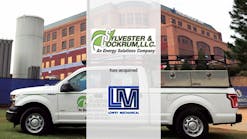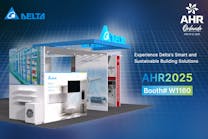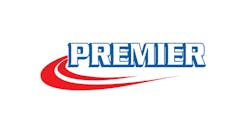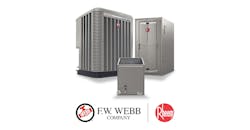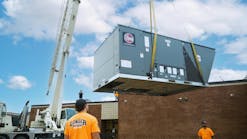When it comes to project management, the devil is in the details. The project manager is responsible for overseeing all aspects of a particular job – including labor, equipment, subcontractors, paperwork, special jobsite requirements and much more. To make a job successful, the project manager needs to focus on planning ahead, which will keep the details organized in order to be prepared for when the projects commences. It is important to stay ahead of the curve in project management and ensure that everyone involved is on the same page.
Selecting Your Project Manager
Once a new job is secured, a project manager is assigned based on several factors – such as the current workload, skillset and associated scope of work. Straightforward projects can be managed easily and is typically assigned based on workload. However, when it comes to more complex projects, these are typically assigned to the technical person that is an expert in the area of what the scope is to be performed -- for example: controls, VRF systems, chilled water, etc.
Once the project manager is assigned to a job, he or she is responsible for selecting the team members for on-site work and this is done in a similar manner based on availability and skillset.
Team Members Assigned
Once the project manager is assigned to a job, he or she is responsible for selecting the team members for on-site work and this is done in a similar manner based on availability and skillset. For instance, we at Atlantic Westchester have field labor that has a talent to do specialty work such as wiring, piping, as well as thinking abstractly for design/build. If our typical install crew is already on a project and the next one can’t wait, we figure out who the next best team is, and we coach them through the process to help them expand their knowledge base. Once the team is assembled, getting buy-in from them is generally easy because we only take on work that we know is within our capabilities and the field is confident about performing what is required in a professional manner.
Rules of Engagement Set
Next, a meeting is held with the client to establish the rules of engagement and to determine the client’s expectations. Without that initial groundwork, even the best project manager can run into trouble. The next phase is to hold an internal meeting with all members of the team who will play a role in the project. In that meeting, there are three key points that are established. The first, is the scope of work for the project. The second, is identifying any challenges and/or issues that may arise in completing the scope of work. Lastly, a timeline of the project and the key deadlines are established and agreed upon by all involved.
A timeline of the project and the key deadlines are established and agreed upon by all involved. This tends to be a collaborative meeting where everyone’s input helps in creating the best plan of action to achieve the goals of the project.
This tends to be a collaborative meeting where everyone’s input helps in creating the best plan of action to achieve the goals of the project.
Clarity on Meeting Frequency
Once a project commences, the frequency of meetings will depend on size and scope of the particular project. When a design and construction management team are involved, then meetings happen frequently, possibly weekly, and typically include the owner or owner’s representative. Meanwhile, design/build projects, tend to have meetings on an as-needed basis depending on scope and magnitude. At Atlantic Westchester, we require a kickoff meeting to take place, so that coordination is planned from there. We have long standing relationship with a variety of subcontractors, so we often know exactly what to expect and how things will turn out.
The Atlantic Westchester team also conducts formal work in process (WIP) meetings every two weeks in our office.
The Atlantic Westchester team also conducts formal work in process (WIP) meetings every two weeks in our office. Project managers may go to the field frequently depending on the stage that a project is in, or they may not have to visit and can be briefed via phone and photographs. Again, it all depends on size, scope and complexity of a job.
Get All ‘Teched’ Out
It is important to utilize technology that is currently available to stay organized when reporting, recording field notes, etc. For quite some time, we have been utilizing iPads to take notes that can be sent via email and copied/pasted as required. Additionally, we use templates and Excel spreadsheets to help things stay organized. Our new enterprise software can manage a project from submittals to invoicing, so everything is kept in one place on a digital platform. We are starting to use this method and are excited about the efficiency it will offer.
When it comes to material handling, we make sure that the lead field tech or the project manager goes to the yard to inspect the equipment to make sure it is correct and not damaged. Whenever possible, we prefer to get complete deliveries instead of partials. This helps to keep track of what we have, so that we don’t have to worry about waiting for items to arrive to complete an order. It also helps keep things more organized. Keeping track of materials can get tricky, but the field leaders usually do a great job – knowing what they have on-site versus what they need. On occasion, it will make sense to stagger shipments, so we have what we need, when we need it.
Efficiency & Details
Project management is really about efficiency and details. Any project manager can get a job completed, but an excellent project manager will use their organizational and communication skills to make the completion of the project as efficient and successful as possible.
Bud Hammer is President, Atlantic Westchester, Inc., a commercial and industrial HVAC and energy efficiency company located in Bedford Hills, NY. Atlantic Westchester offers a variety of commercial and industrial HVAC solutions for businesses, institutions and government facilities across the NY metro area. For additional information, visit atlanticwestchester.com.


